Litvinenko poisoning and a journalist gunned down: The critics of Vladimir Putin who met untimely deaths
A plane crash which killed all 10 people on board is widely seen as an act of revenge after a short-lived rebellion that Vladimir Putin branded a "stab in the back".
Sky News, Thursday August 24th 2023
It's thought the Wagner Group's brief uprising against the Russian defence ministry may have sealed Yevgeny Prigozhin's fate.
The mercenary chief is presumed dead in a plane crash - two months to the day after his aborted mutiny which was seen to weaken Vladimir Putin's position.
Though his death is yet to be confirmed, Prigozhin would not be the first person who fell out of favour with Mr Putin's regime to die in mysterious circumstances. We've revisited some notable events from the past two decades.
Alexander Litvinenko (2006)
Former Russian FSB agent Alexander Litvinenko died in November 2006, almost three weeks after drinking tea poisoned with radioactive polonium-210, a rare and very potent radioactive isotope.
It is understood the he ingested the tea during a meeting with two Russian spies at a London hotel.
Before fleeing Russia and being given British nationality, Mr Litvinenko had accused Mr Putin of corruption. He also blamed the Russian president for a number of apartment block bombings which helped start the Second Chechen War in 1999, the popularity of which helped bring him to power.
His murder was suspected to have been personally signed off by Mr Putin, but Russia has always denied any involvement.
Anna Politkovskaya (2006)
The 48-year-old journalist and human rights activist, a fierce critic of Mr Putin, was brutally murdered after receiving several death threats.
Ms Politkovskaya was carrying groceries into her Moscow apartment on 7 October 2006 - the president's birthday - when she was shot four times at close range. Her body was found in a lift.
Five men were convicted over the killing in 2014 - though it remains unknown who ordered it.
Ms Politkovskaya specialised in uncovering state corruption and rights abuses. She won international acclaim for her reports in the Putin-critical newspaper Novaya Gazeta, about Russian abuses in Chechnya, and for her book "Putin's Russia".
Boris Berezovsky (2013)
The exiled tycoon was once leader of the so-called "oligarchs" who wielded power during the presidency of Boris Yeltsin in the 1990s.
But after falling out with Mr Putin - who is said to have been handpicked by Berezovsky as Yeltsin's successor - he fled and settled in Britain, where he became an outspoken critic of the new president.
He was found dead in a bathroom at his Berkshire home in March 2013, in an apparent suicide. An inquest into his death recorded an open verdict.
Boris Nemtsov (2015)
The Russian opposition leader was shot dead just metres from the Kremlin as he walked home at night with his girlfriend in February 2015.
The murder in Moscow was the most high-profile political killing in Russia since Mr Putin rose to power in 1999.
Mr Nemtsov, 55, a former deputy prime minister in Boris Yeltsin's government, had criticised the Russian president in a series of analytical reports. Before his death, he was working on a report on Russia's role in Ukraine.
Five men were convicted over his killing in 2017.
Natalia Estemirova (2009)
Ms Estemirova, an award-winning human rights campaigner, was kidnapped near her home on 15 July 2009 in the Chechen capital, Grozny. Several hours later her body was found in an area of woodland, with gunshots wounds to the head and chest.
The 51-year-old had collected evidence of human rights abuses in Chechnya since the start of the second war there in 1999.
She also worked with the investigative journalist Anna Politkovskaya, who was murdered in 2006.
Paul Klebnikov (2004)
The American journalist, then Forbes Russia editor, was killed outside his office in a drive-by shooting in Moscow in 2004.
He worked to expose corruption and human rights abuses in Russia, and had published a list of Russia's richest people.
Denis Voronenkov (2017)
The former Russian politician, an outspoken critic of Mr Putin, was shot and killed in Kyiv in March 2017.
Previously a member of the communist faction in the lower house of Russian parliament, Mr Voronenkov fled to Ukraine in 2016 and was granted Ukrainian citizenship.
Ukraine's then president Petro Poroshenko described his killing as an "act of state terrorism" by Russia - an accusation quickly rejected by the Kremlin.
Deaths during Ukraine war
Several senior executives in the oil and gas industry have met suspicious ends since the Russian invasion of Ukraine in February 2022.
Ravil Maganov, the chairman of Russia's second largest oil producer Lukoil, who had openly criticised the war in Ukraine, reportedly died in September 2022 after falling from a sixth floor window at the Central Clinical Hospital in Moscow.
His death followed those of seven other Russian energy execs since the start of 2022. Among them were Mr Maganov's former top Lukoil executive Alexander Subbotin, whose body was discovered in the basement of a country house in the Moscow region.
Poison survivors
The novichok poisonings of Russian opposition leader Alexei Navalny and former spy Sergei Skripal sent shockwaves through the international community.
Mr Skripal, a former military intelligence officer, was convicted of spying for the UK before he was freed as part of a spy swap. He was found slumped on a bench in his home town of Salisbury in March 2018, alongside his daughter Yulia, after they were both poisoned with the novichok nerve agent.
They survived, but Salisbury resident Dawn Sturgess died after she was exposed to a perfume bottle containing novichok.
Two years later, Mr Navalny was poisoned with what Western experts concluded was novichok. He fell ill and collapsed on a flight from Tomsk in Siberia to Moscow.
He narrowly survived after he was airlifted to Germany for treatment.
Mr Navalny was subsequently imprisoned when he returned to Russia in January 2021, and this month a Russian court sentenced him to an additional 19 years in prison.
The Kremlin has denied involvement in both attacks.
Years prior to the novichok attacks, in 2004, Ukrainian opposition leader Viktor Yushchenko, who ran against the Kremlin-favoured candidate, was poisoned with dioxin.
He recovered, but his face and body were disfigured by the poisoning and he required dozens of operations.
Please Recommend this page and follow us

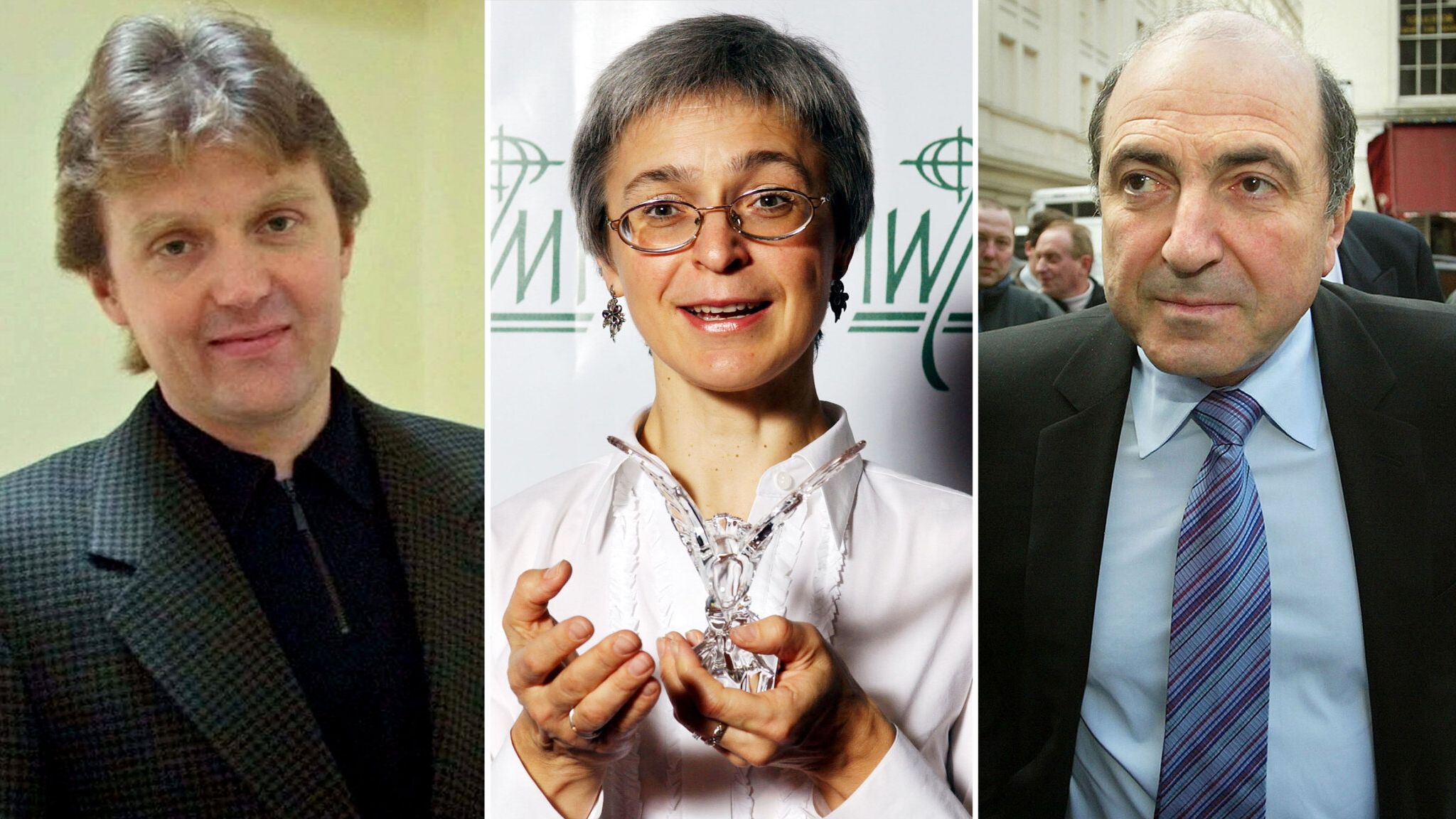

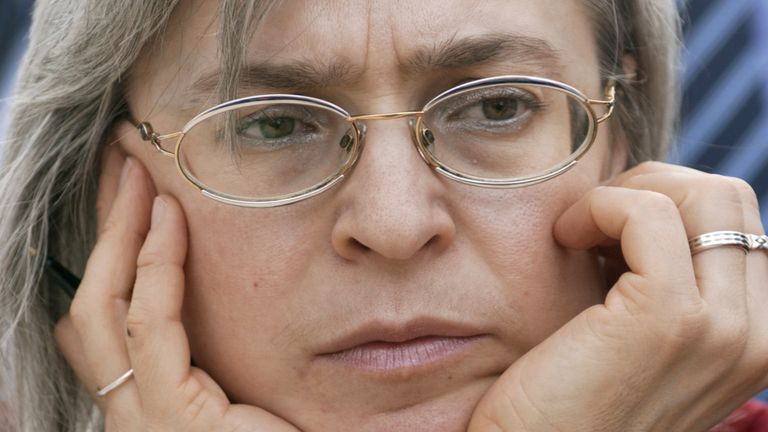

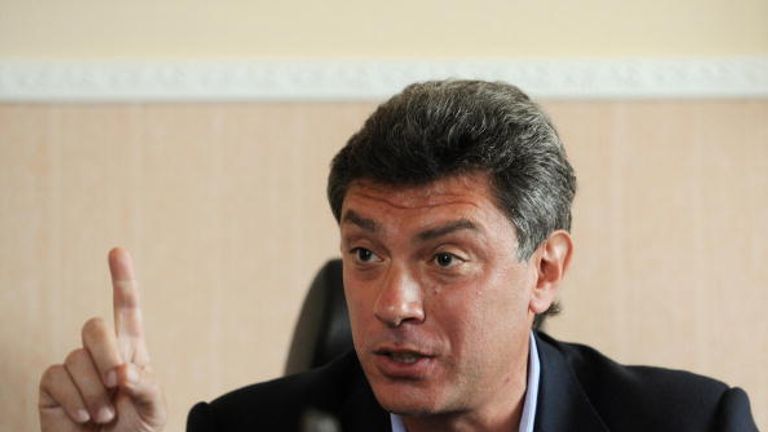
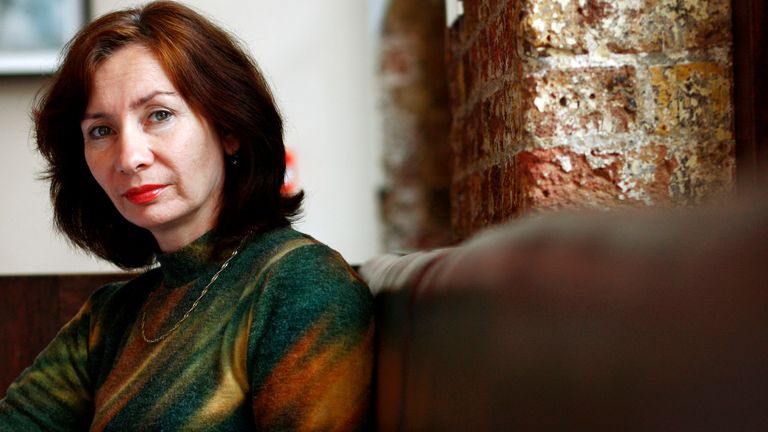
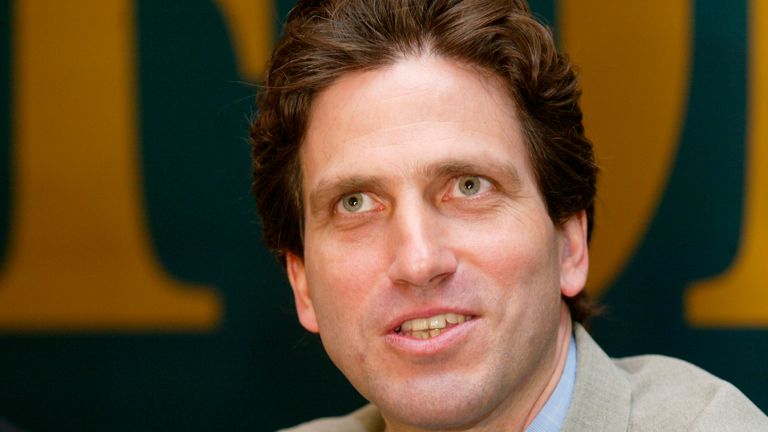

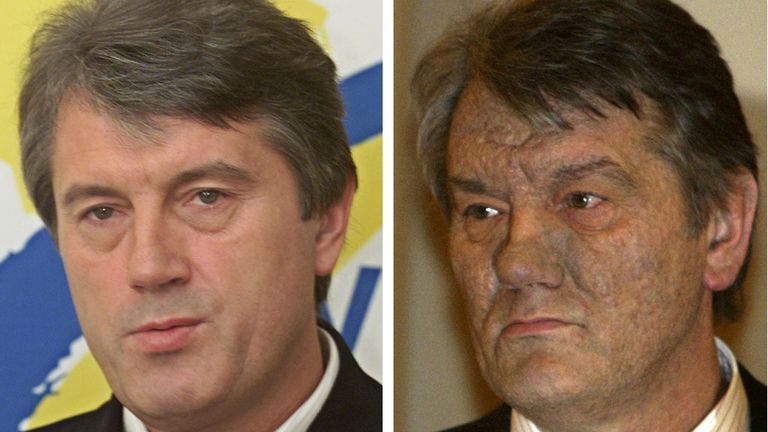

No comments:
Post a Comment